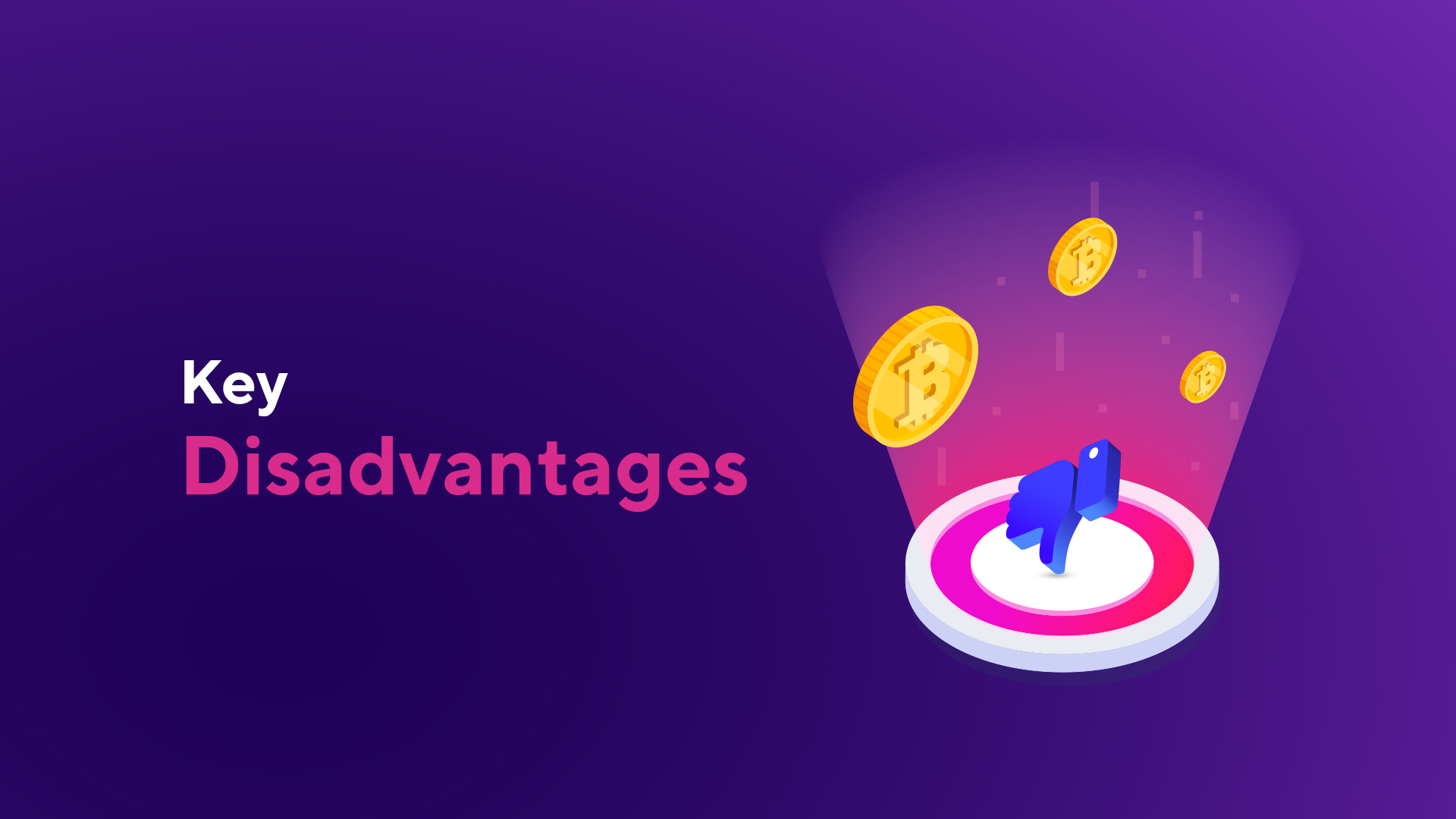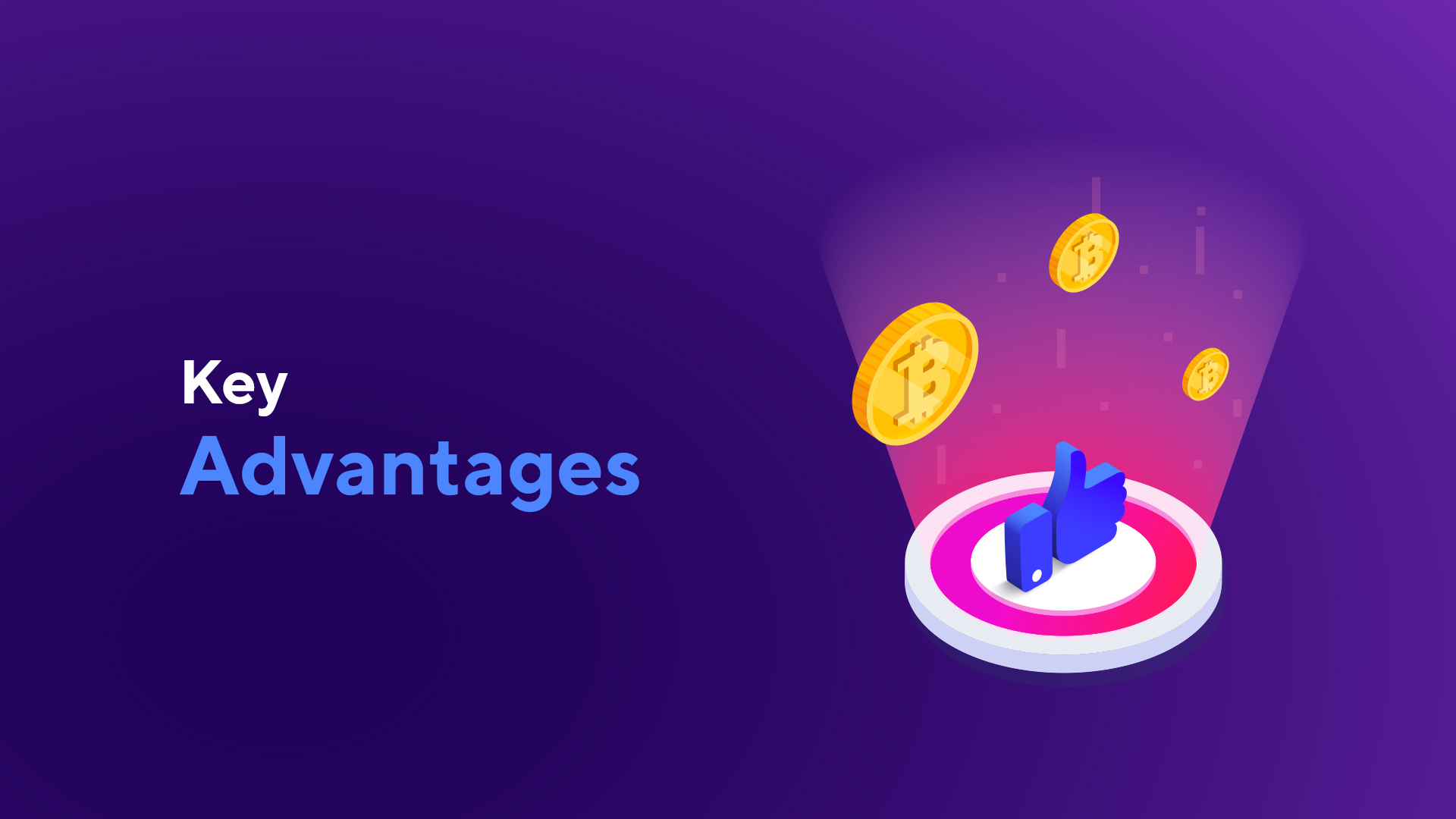Nowadays, cryptocurrency is one of the hottest topics of all the time which turned the digital world upside down. While some people consider Bitcoin, Ethereum, and Litecoin to be the economic invention of the century, others are critical of digital money and predict its upcoming crash.
Today, we’re about to show you some advantages and disadvantages of blockchain technology and the most popular currencies. Let’s get started!
What Are the Key Disadvantages?

#1 The High Volatility
If you look at Bitcoin’s price changes on the entire market, it becomes clear that the currency as a real means of payment can only be used to a limited extent. Due to the coronavirus crisis as well as BTC halving, the rate has changed significantly during the two months.
This fact ensures that Bitcoin should be considered a speculative one. Potential online buyers must be ready to cope with the fact that the rate of the crypto purchased at the beginning of the year may change significantly at year-end.
# 2 No Key Areas of Adaptation
Even if more and more companies rely on blockchain technology, and projects like IOTA cooperate with large companies such as Bosch, Cisco, or Volkswagen, digital currencies haven’t found their place in everyday life yet. In theory, there is a possibility that no key areas of adaptation will be found and cryptocurrencies will lose their importance.
#3 An Arduous Process of Market Entry
While stock market entry isn’t a big problem for most investors, buying a digital currency for the first time can easily overwhelm a user. The number of exchanges is too large, and the verification process takes a lot of time. At first glance, deposit, withdrawal, and transaction fees can also serve as a deterrent.
What Are the Key Advantages?

#1 High-profit Potential
This point is a solution to the very first disadvantage — while some people consider the large price fluctuations as a risk, others feel the chance of receiving high profits. If you have good instincts and invest in promising projects at the right time, you can achieve financial independence with some patience and a lot of nerves.
#2 More & More Use in Prospect
While the value of digital currencies was mainly speculative one in the early days of Bitcoin or Ethereum, more and more scopes of application are emerging. Some online shops already offer Bitcoin as a payment option, and various online casinos contribute to the spread of cryptocurrencies as well. So-called ‘smart contracts’ are also worth mentioning. These contracts directly control the transfer of digital currencies between parties under certain conditions.
#3 Decentralization
The biggest advantage of digital currencies is their less value as a speculative object. A blockchain serves as a database, which practically cannot be faked or controlled. It’s maintained in a decentralized manner, i.e. there are a lot of independent computers that save every single transaction conducted in the blockchain.
In case of doubt, millions of users can understand whether a transaction has been made or not. This is the key advantage over a bank — in the centralized model, there is only one instance that can be indicative of cash flow. In this way, it’s much easier to control it than in the case of a large number of independent observers.
The blockchain can be used not only in the financial sector — now it’s possible to get away without financial intermediaries. In this way, counterfeit-proof elections or playing music or films without bypassing via streaming services can act as a mediator between the user and the label/studio
What other cryptocurrency pros & cons do you know? Just share your thoughts in the comments!

Leave a Reply